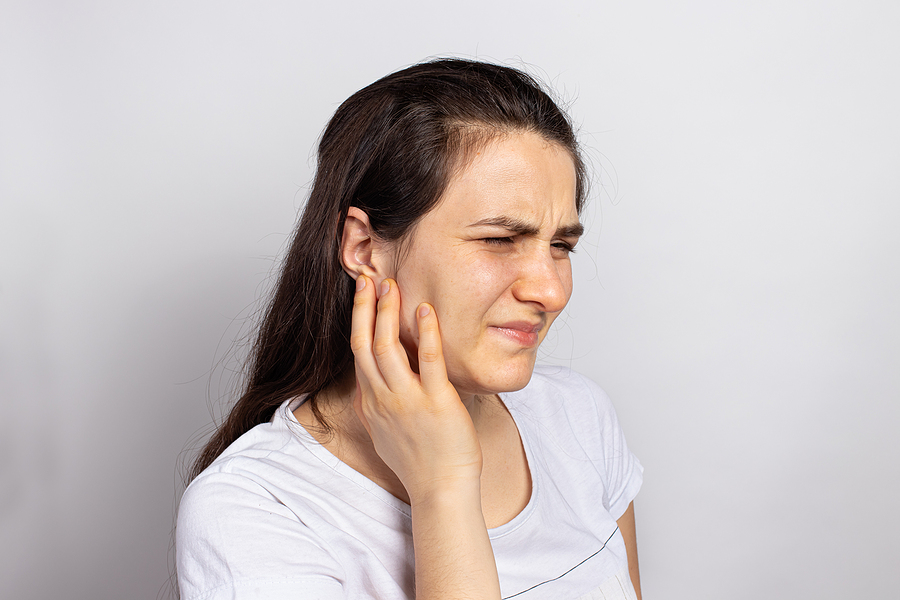Teeth extractions are performed to preserve oral health, alleviate pain or discomfort, and prevent further dental problems. If you're experiencing dental issues that may require extraction, visit Blue Turtle Dental at one of our convenient locations at 2290 Birch St, Ste A, Palo Alto, CA 94306; 81 Birch Street, Redwood City, CA 94062; or 1394 Franklin St., Santa Clara, CA 95050 for a comprehensive evaluation and personalized treatment plan. You can schedule an appointment online or call us at (650) 503-6777, (650) 345-5300, or (408) 246-6030.
Posted by Alex Yen 2024-01-03

Tooth extractions can be a daunting experience. Whether it's due to severe decay, overcrowding, or impaction, the thought of having a tooth removed often brings about anxiety. But what happens after that? How long will it take for you to feel like yourself again? Understanding the healing process is crucial for anyone facing this dental procedure. In Santa Clara, Palo Alto, and Redwood City, CA, many people undergo teeth extractions each year, so knowing what to expect afterward can make a significant difference in your recovery journey. Let’s delve into what you need to know about healing after tooth extraction and how to ensure your body bounces back quickly and smoothly.
The Process of Tooth Extraction
Tooth extraction begins with a thorough examination. Your dentist will assess the condition of your tooth and surrounding tissues using X-rays. This step is crucial for planning the procedure effectively.
Once you're ready, anesthesia will be administered to numb the area. Patients may choose between local anesthesia or sedation, depending on their comfort level and anxiety.
Next, the dentist carefully loosens the tooth from its socket. Depending on its position, this might involve gentle rocking or more invasive techniques. If needed, they may remove some bone around the tooth for easier access.
After successfully extracting the tooth, gauze is placed over the site to control bleeding and promote clotting. Instructions are provided to ensure proper care in the hours and days following your procedure. Understanding this process can help alleviate fears and prepare you for what’s ahead during recovery.
Factors Affecting Healing Time
Healing time after a tooth extraction varies widely. Several key factors influence this process.
- First, the complexity of the extraction plays a significant role. Simple extractions typically heal faster than surgical ones involving impacted teeth.
- Age is another critical factor. Younger patients often experience quicker healing compared to older adults, who may have slower recovery due to different health conditions.
- Individual health matters too. Those with chronic illnesses or compromised immune systems might face prolonged healing times.
- Moreover, lifestyle choices can impact recovery. Smoking and alcohol consumption can hinder blood flow and slow down the body’s natural healing mechanisms.
- Following post-operative care instructions from your dentist is essential for optimal recovery speed. Adhering to these guidelines helps reduce complications and supports better outcomes during the healing journey.
What to Expect During the Healing Process
After a tooth extraction, it’s normal to experience some discomfort. Pain levels can vary from mild to moderate, depending on the complexity of the extraction.
Swelling usually peaks around 48 hours after the procedure. Ice packs can help manage this early on.
You might notice bleeding for a few hours post-extraction; gentle biting on gauze will assist in clot formation. Don’t worry if you see slight discoloration or bruising later—this is part of healing.
Within a week, most people find that pain and swelling begin to subside significantly. By then, you should be able to return to regular activities without much hassle.
However, full healing may take several weeks as your gums close up completely where the tooth was removed. Listening to your body during this period is vital for optimal recovery and comfort.
Tips for Faster Healing
After a tooth extraction, your body needs time to heal. Here are some tips to help speed up the process.
- Stay hydrated. Drinking plenty of water helps flush out toxins and supports overall healing.
- Rest is crucial. Avoid strenuous activities for the first few days post-extraction. Your body heals best when it's not under stress.
- Follow your dentist's aftercare instructions carefully. This includes taking prescribed medications as directed and using ice packs to reduce swelling.
- Use saltwater rinses starting 24 hours after the procedure. It promotes healing and keeps the extraction site clean.
- Maintain a balanced diet rich in vitamins and minerals. Foods high in vitamin C can aid tissue repair, while protein supports recovery.
- Avoid smoking or using straws, as these could dislodge blood clots essential for healing at the extraction site. Contact us to learn more.
Foods to Eat and Avoid After a Tooth Extraction
After tooth extraction, choosing the right foods can significantly impact your recovery. Soft foods are your best friends during this time. Think yogurt, smoothies, mashed potatoes, and applesauce. These options provide nutrition without putting pressure on the healing area.
Stay clear of hard or crunchy items like nuts and chips. They can irritate the extraction site and hinder healing. Spicy foods might also cause discomfort; it’s wise to avoid them until you’re fully healed.
Temperature matters too—hot foods can lead to increased swelling or pain. Opt for room temperature or cool dishes instead.
Hydration is essential as well! Drink plenty of water but steer clear of straws; sucking motions may dislodge blood clots critical for proper healing. Choosing the right diet not only aids in comfort but helps ensure a smoother recovery process after teeth extractions in Santa Clara, Palo Alto, and Redwood City, CA.
Signs of Complications and When to Seek Help
After a tooth extraction, it’s essential to monitor your recovery closely. While some discomfort is normal, certain signs may indicate complications.
- If you experience persistent pain that worsens after a few days, it could signal an issue like a dry socket. This condition occurs when the blood clot dislodges from the extraction site.
- Swelling or redness around the area can also be concerning. If swelling increases rather than subsides within 48 hours, it's worth discussing with your dentist.
- Fever and chills are not typical after an extraction. These symptoms might suggest an infection that requires prompt attention.
- If you notice excessive bleeding that doesn’t improve with pressure over time, don’t hesitate to seek professional help. Your health is paramount; addressing concerns early can prevent further complications down the road.
Conclusion: Importance of Proper Care for Faster Healing
Proper care after a tooth extraction is essential for ensuring a smooth and swift recovery. The healing process can vary from person to person, influenced by factors like age, overall health, and the complexity of the extraction. By following post-operative instructions from your dentist or oral surgeon, you can significantly reduce discomfort and minimize complications.
Maintaining good oral hygiene while being gentle with the affected area helps prevent infections. Staying hydrated and eating nutritious foods supports your body in healing effectively. Furthermore, recognizing signs of potential complications early on allows for timely intervention.
Taking these steps not only aids in faster recovery but also contributes to long-term dental health. Prioritizing proper care ensures that you'll be back to enjoying life without any discomfort sooner rather than later. If you're considering teeth extractions in Santa Clara, Palo Alto, or Redwood City, CA., understanding the healing process is crucial for optimal outcomes.
More Blog Posts
Locations
- MON - THU8:00 am - 5:00 pm
- FRI - SUNClosed
- MON - FRI8:00 am - 5:00 pm
- SAT8:00 am - 1:00 pm
- SUNClosed
- MON - THU8:00 am - 5:00 pm
- FRI - SUNClosed
1349 Franklin Street, Surgical Center 94062
Phone: (408) 246-6030
Email: inforwc@blueturtledental.com
- MON - THU8:00 am - 5:00 pm
- FRI - SUNClosed
1394 Franklin St.,
Santa Clara, CA
Phone : (408) 246-6030Text Us : (408) 246-6030




